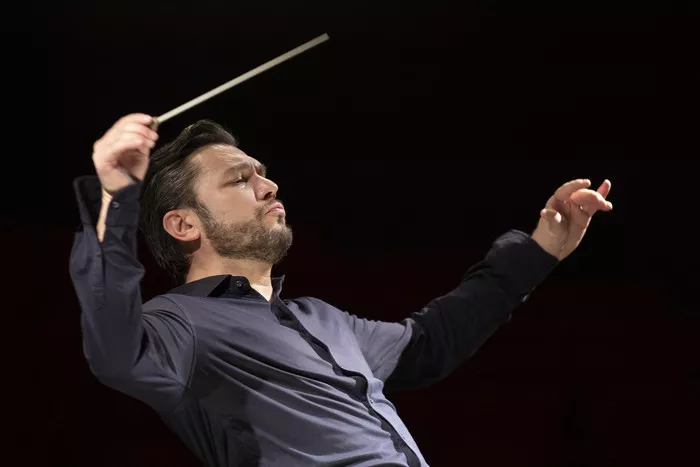Classical music is a cornerstone of our cultural heritage. It spans centuries, originating in Western art traditions and continuing to influence modern society. Despite perceptions of it being outdated, classical music’s role extends beyond entertainment. It plays significant parts in education, therapy, and cultural preservation.
I. Historical Context
Classical music has evolved over centuries. It includes periods such as Medieval, Renaissance, Baroque, Classical, Romantic, and Modern eras. Each era brought unique styles and forms. Composers like Bach, Mozart, Beethoven, and Tchaikovsky made lasting impacts. Their works are still performed and revered today.
II. Value on Different Aspects
1. Educational Value
Classical music is important in education. Learning an instrument enhances cognitive abilities, improves memory, and teaches discipline. Students exposed to classical music often perform better academically. This genre also introduces listeners to complex musical structures and theories, enriching their understanding of music.
Enhancing Cognitive Abilities: Playing an instrument or studying music theory develops critical thinking and problem-solving skills.
Improving Memory: Music training enhances memory, both auditory and visual.
Teaching Discipline: Learning classical music requires practice, patience, and perseverance.
2. Cultural Preservation
Classical music connects us to our past. It preserves historical traditions and practices. Many classical pieces are inspired by or tied to historical events, literature, and art. Orchestras and opera houses work to keep this heritage alive, ensuring that these cultural treasures are not lost.
Historical Inspiration: Many works reflect historical events or literary themes.
Cultural Institutions: Orchestras and opera houses preserve and promote classical music.
Global Influence: Classical music is performed and appreciated worldwide, transcending cultural boundaries.
3. Emotional and Psychological Benefits
Classical music offers emotional and psychological benefits. It can evoke a wide range of emotions and provides a therapeutic outlet. Studies show classical music reduces stress, improves mood, and alleviates depression and anxiety. Music therapy often incorporates classical music to help patients cope with various mental health issues.
Stress Reduction: Listening to classical music can lower stress levels.
Mood Improvement: It can elevate mood and enhance emotional well-being.
Therapeutic Use: Classical music is used in therapy to aid mental health treatment.
III. Influences of the Classic Music
1. Influence on Modern Music
Classical music has influenced modern music significantly. Many contemporary genres, including pop, rock, and electronic music, draw elements from classical compositions. Techniques like orchestration, counterpoint, and harmony are foundational in classical music and continue to shape today’s music production. Film scores, in particular, owe much to classical traditions, with composers like John Williams and Hans Zimmer creating music that resonates with classical grandeur.
Pop and Rock: Elements of classical music can be found in pop and rock songs.
Electronic Music: Many electronic compositions use classical techniques.
Film Scores: Modern film scores often draw from classical music for emotional impact.
2. Innovation and Experimentation
Classical music is not static; it evolves and adapts. Modern composers experiment with new forms and techniques, pushing the boundaries of what classical music can be. This innovation ensures that classical music remains dynamic and relevant. Composers like Philip Glass and Steve Reich have incorporated minimalist and avant-garde elements, expanding the genre’s horizons.
Modern Composers: Innovators like Philip Glass and Steve Reich push boundaries.
New Techniques: Experimentation with forms and techniques keeps the genre dynamic.
Continued Evolution: Classical music evolves, reflecting contemporary influences.
3. Global Influence
Classical music’s influence is global. While it originated in Europe, it has found a home worldwide. Countries like China, Japan, and South Korea have vibrant classical music scenes. International competitions and collaborations foster a global appreciation and exchange of classical music traditions. This global reach highlights the universal appeal and adaptability of classical music.
International Competitions: Events like the Tchaikovsky Competition attract global talent.
Cultural Exchange: Cross-cultural collaborations enrich the genre.
Universal Appeal: Classical music’s themes and emotions resonate globally.
4. Economic Impact
Classical music has a significant economic impact. Orchestras, opera houses, and music festivals generate revenue and create jobs. Tourism related to classical music events boosts local economies. Additionally, classical music recordings and merchandise contribute to the broader music industry.
Revenue Generation: Performances and festivals boost local economies.
Job Creation: Classical music supports numerous jobs in performance and production.
Tourism: Events attract tourists, benefiting local businesses.
V. Challenges and Opportunities
Classical music faces challenges, such as funding cuts and declining audience numbers. However, these challenges also present opportunities for innovation and adaptation. Embracing digital media, exploring cross-genre collaborations, and engaging younger audiences are crucial for the future of classical music. Institutions must evolve to stay relevant and financially sustainable.
Funding Cuts: Financial challenges require innovative solutions.
Declining Audiences: Engaging younger audiences is essential.
Digital Media: Embracing technology can expand reach and accessibility.
See Also: Classical Music for Kids: A Deep Dive into Timeless Melodies
VI. Conclusion
Classical music remains a vital and dynamic part of our cultural landscape. Its educational, emotional, and cultural contributions are immense. While it faces challenges, classical music continues to evolve and adapt, ensuring its relevance for future generations. By supporting classical music and embracing its transformative power, we can enrich our lives and preserve a valuable cultural heritage.

